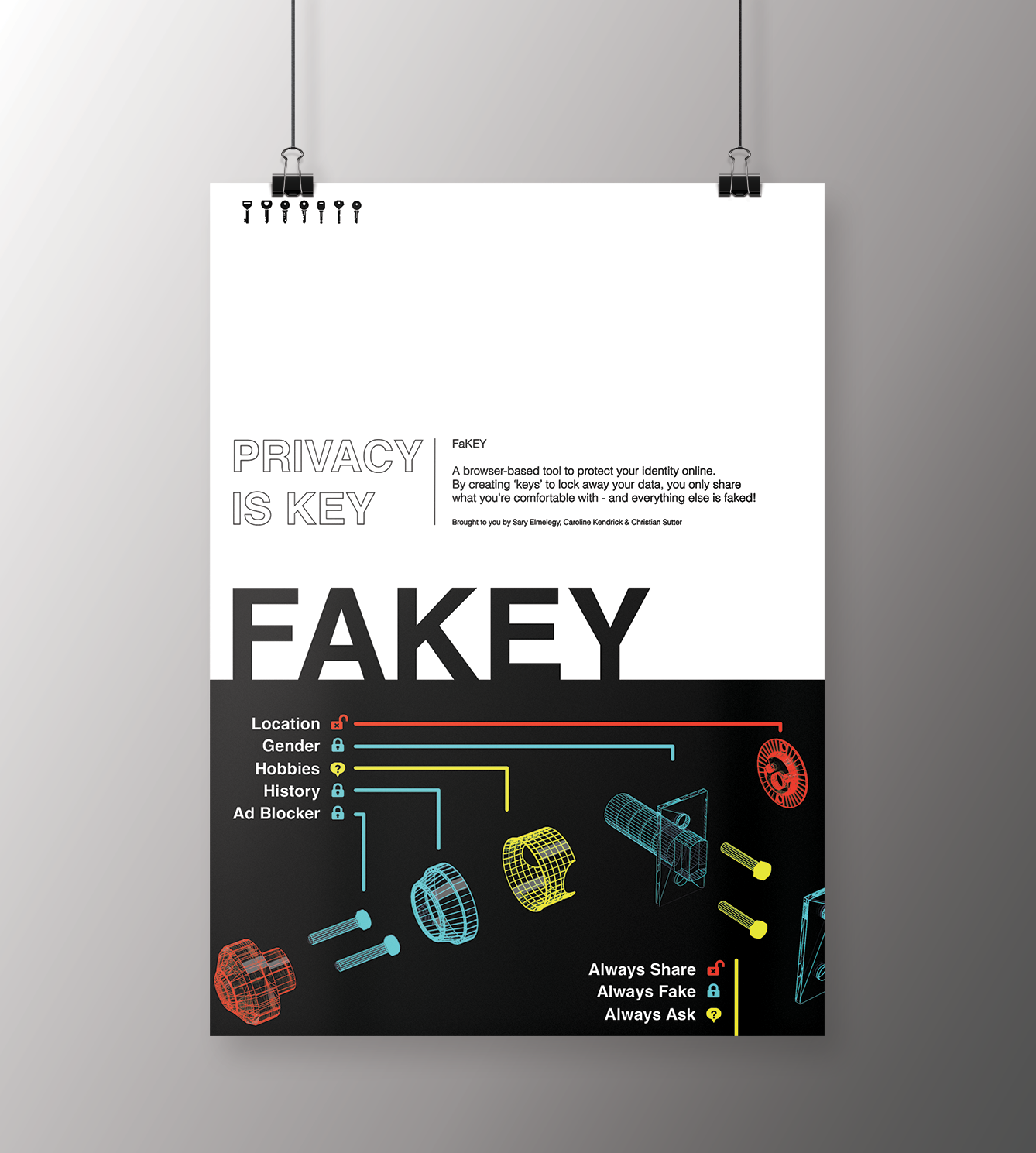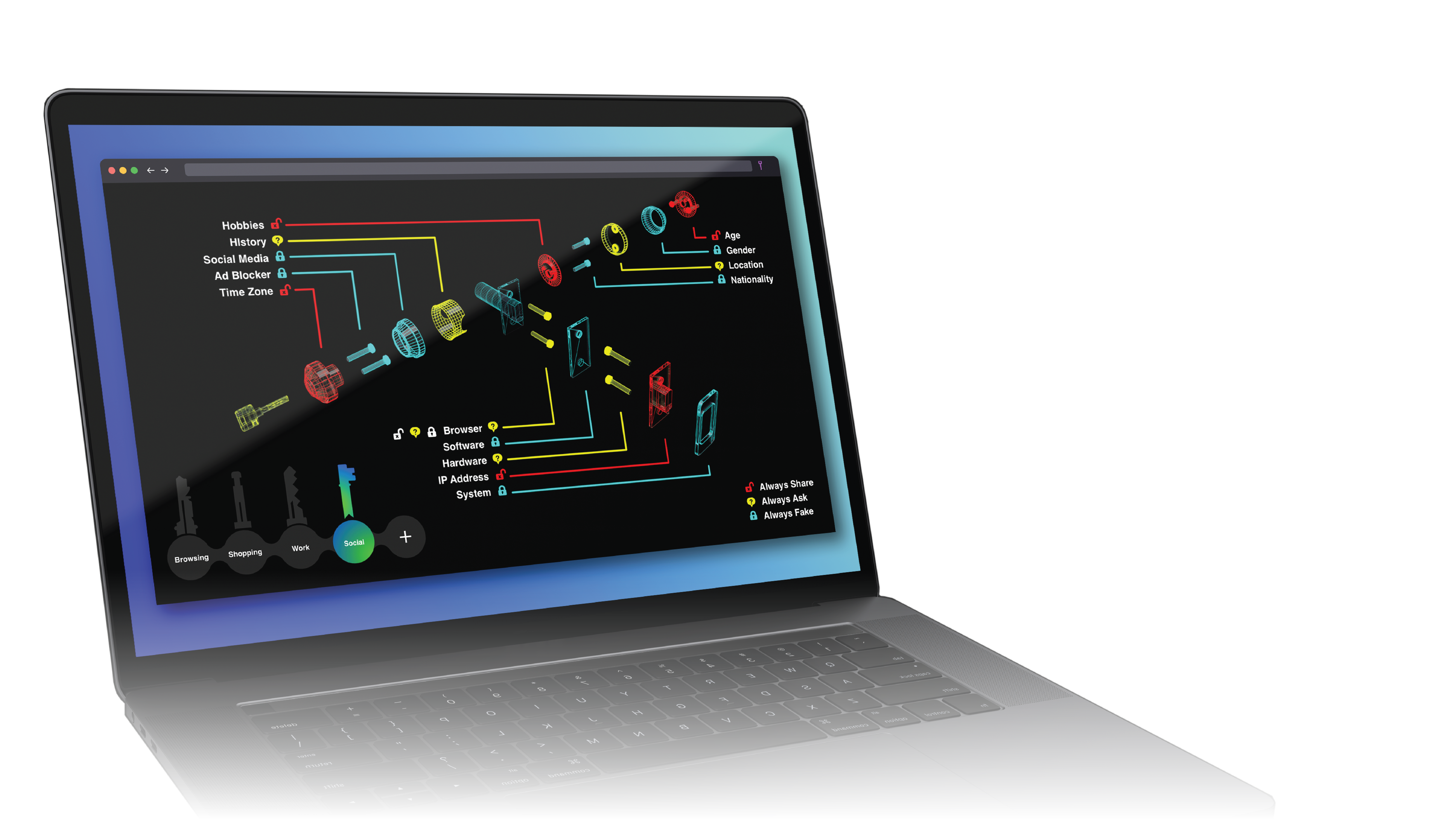
about this project
Fakey is a browser-based data-security solution that gives users agency over the data collected about them. Using the visual metaphor of an analog lock to "lock" their data away, this web-based application and browser extension allows users complete control over how, when, and where data is shared.
Caroline Kendrick
Sary Elmelegy
Christian Sutter
Concept, UX/UI Design, Animation
Concept, UX, 3D Modeling, Extension UI
Concept, UX, Browser UI
design
Two weeks to fulfill the challenge: create an interaction concept that helps users of digital services protect their privacy or secure their data. Although there are tools to block data tracking, the use of these can limit functionality on some digital services. Therefore, we created a browser extension that doesn't just block data tracking, but spoofs data so that users may use the full functionality of digital services, without sacrificing privacy.
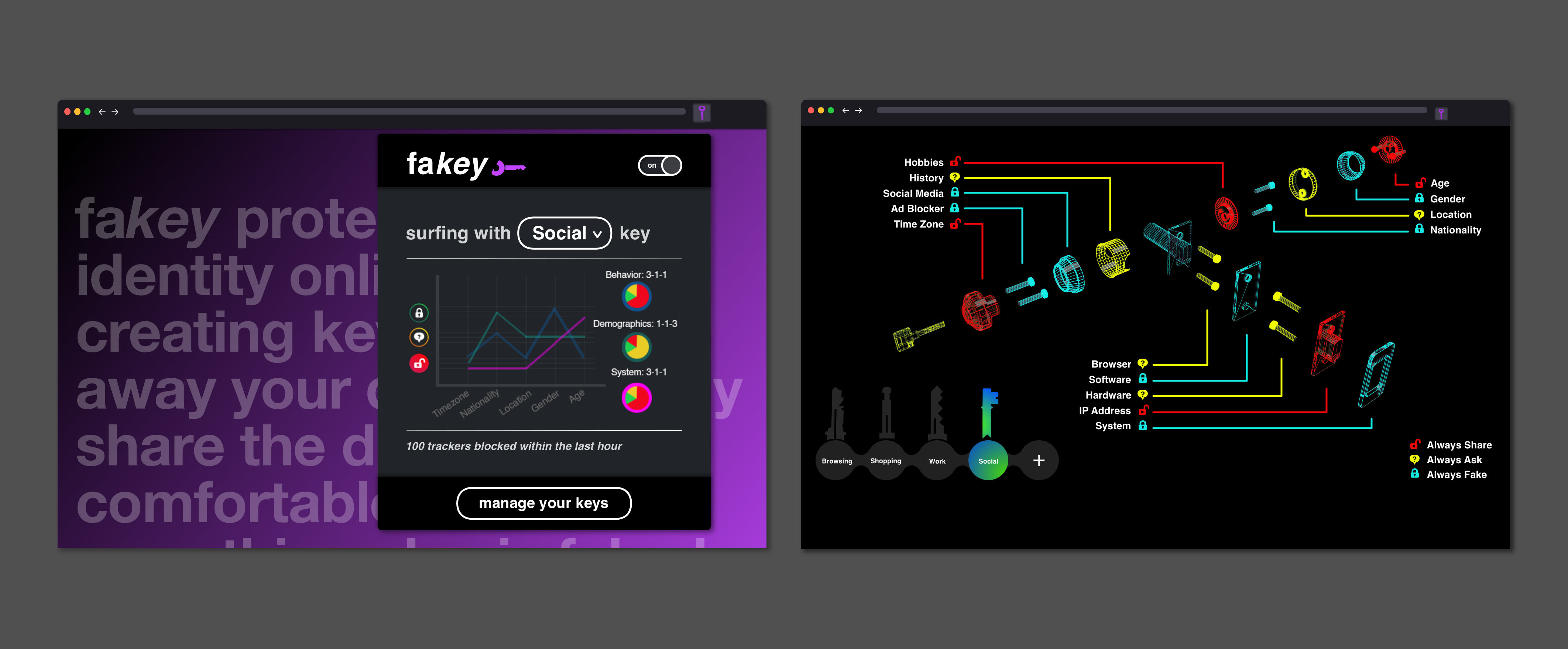
interaction
Collected data types are tied to lock components, which can be individually set to share data, generate fake data, or ask the user each time a site attempts to collect. The user has complete control over what types of data they want to share or spoof, and can create multiple profiles ( "keys") which they can change at any time.
In the browser extension, users can quickly disable/enable the tool, switch keys, and view their activity.
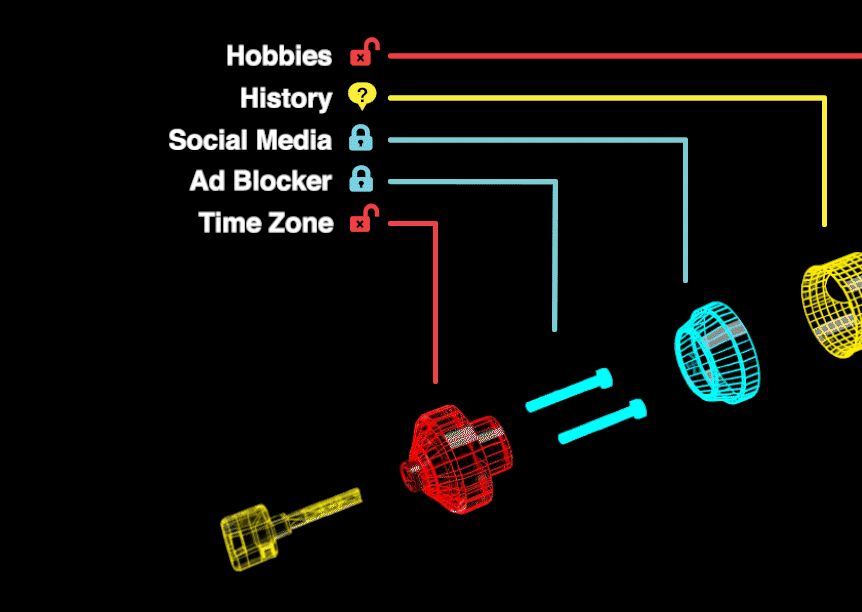
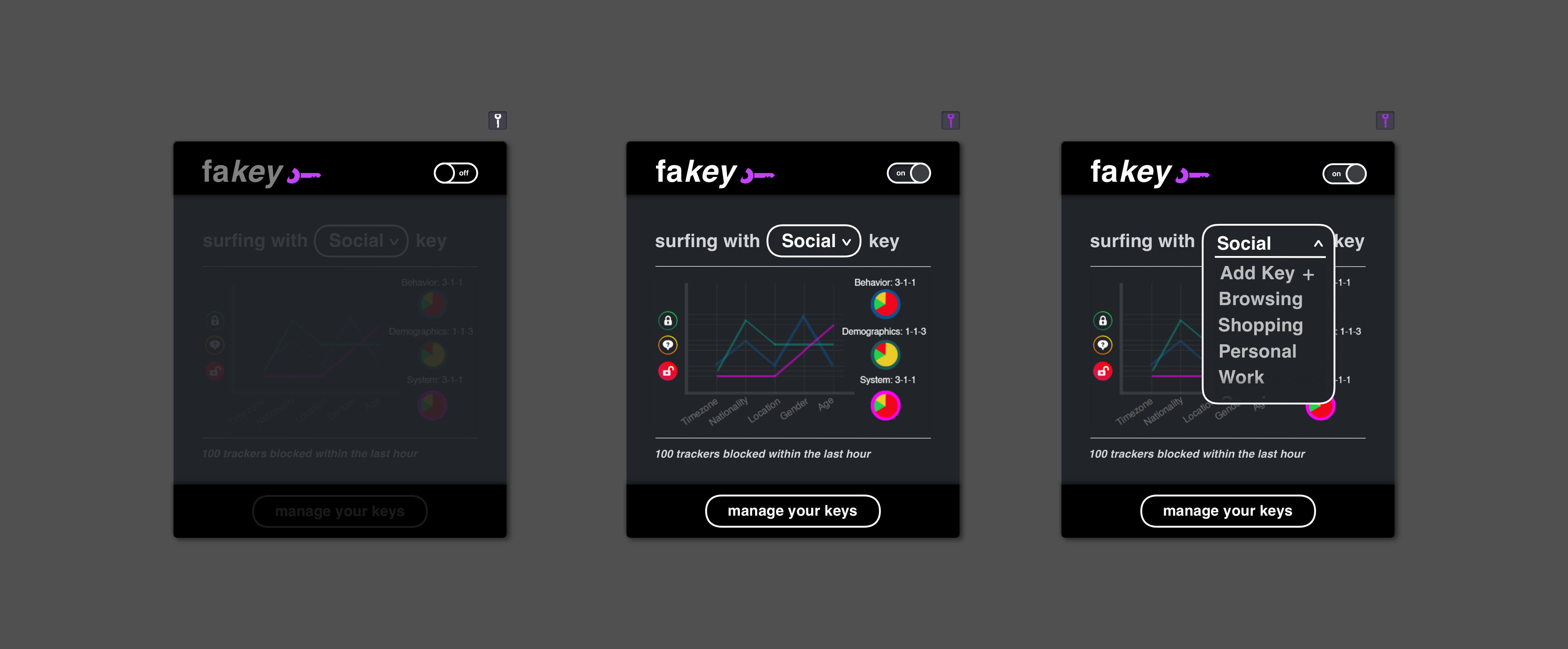
Hey there, this is the default text for a new paragraph. Feel free to edit this paragraph by clicking on the yellow edit icon. After you are done just click on the yellow checkmark button on the top right. Have Fun!
world usability day
Fakey was chosen, along with selected other student projects, to be presented at the World Usability Day event hosted by THI as part of the Poster Exhibition.
